Covid in Scotland: Glasgow to remain in level three lockdown
Glasgow will continue to be the only part of Scotland under level three restrictions for at least another week.
There had been speculation that the city would be able to join the rest of the Scottish mainland in level two.
But First Minister Nicola Sturgeon said there was still concern about an outbreak of the Indian variant of the virus in the city.
She said the variant was now accounting for at least half of the new Covid cases in Glasgow.
Ms Sturgeon said it was hoped the city would be able to move to level two on Saturday of next week - with a final decision being taken on Tuesday.
And she said there were signs that the situation in Glasgow was beginning to stabilise, with the number of new cases falling in recent days in the postcode areas in the southside of the city which had been at the centre of the outbreak of the Indian variant.
The level three restrictions mean people are not allowed to meet in each other's homes, and pubs and restaurants are not able to sell alcohol indoors.
Many Glasgow business owners say they are struggling to survive after spending 270 days under tough restrictions, and have criticised the Scottish government for not giving them more financial support.
And opposition parties had demanded urgent action to get the city back on a level footing with the rest of the country - where restrictions have eased in recent weeks - as quickly as possible.
The rest of mainland Scotland is currently due to join most of the country's island communities in level one on 7 June, before the country moves to level zero - meaning something close to normality - on 28 June.
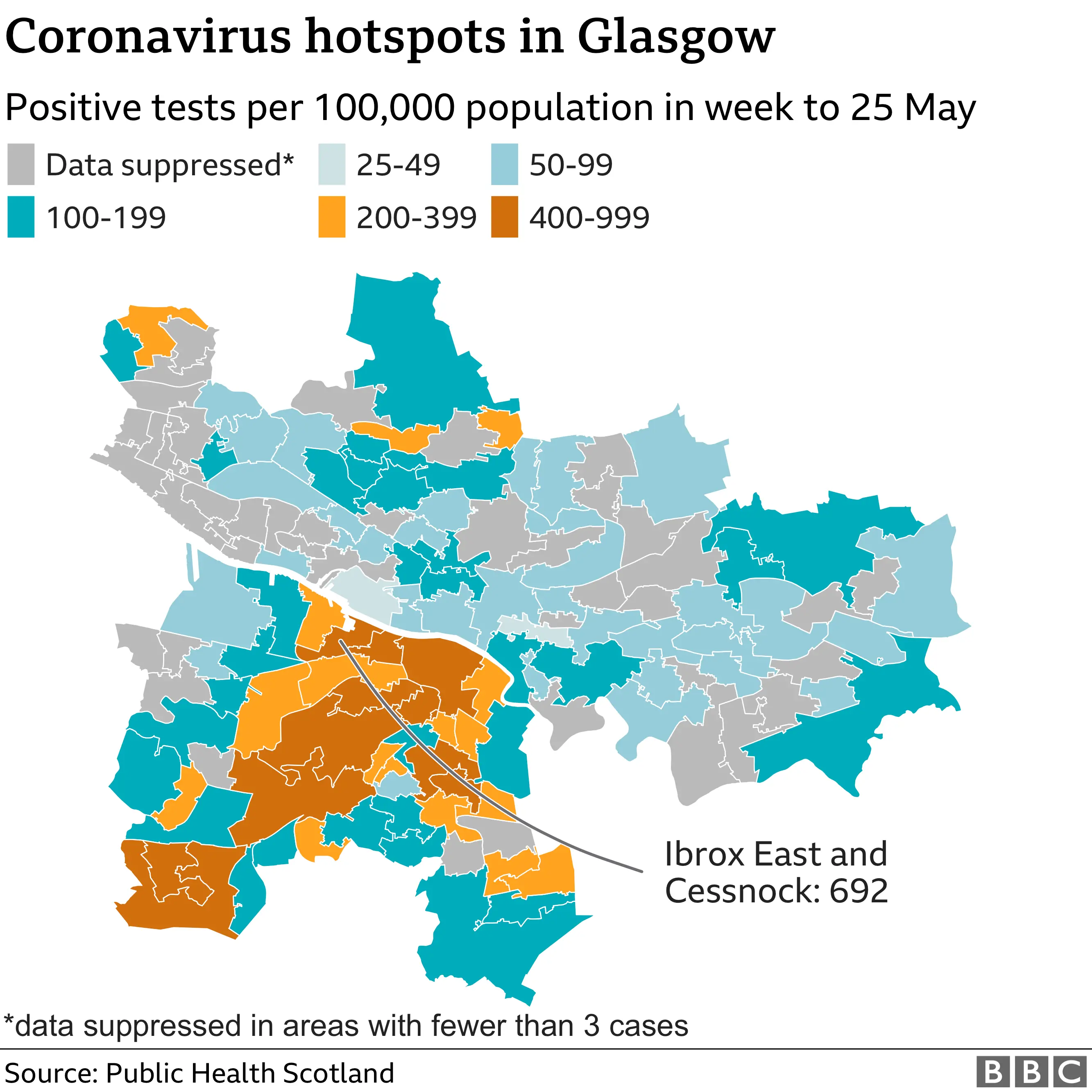
Mobile testing and vaccination centres have been set up in many parts of Glasgow over the past few weeks.
And there has been no significant increase in the number of people being hospitalised with the virus - which public health experts say suggests that it is mainly younger, unvaccinated people who are contracting it.
However, case numbers have risen by about 30% - from 112 cases per 100,000 to about 136 per 100,000 - over the past week, while the rate of positive tests has also crept up from about 4% to 4.4%.
The R number - effectively the rate at which the virus spreads - for Scotland is now estimated to stand at about 1.3, largely driven by the number of cases in Glasgow.
Latest figures released shortly after the briefing revealed the Glasgow weekly case rate had dropped to 135.5 per 100,000 people, the first fall in almost a month.
Meanwhile, drop-in vaccination centres for people aged 40 and over are being opened across the Greater Glasgow and Clyde health board.
The centres have a set number of appointments on a first-come, first-served basis and will be operational from Saturday.
As well as in Glasgow, drop-in vaccinations will also be offered in Paisley, Bearsden, Alexandria, Renfrew, Johnstone, Greenock, Dumbarton, Eastwood, Kirkintilloch, Clydebank and Port Glasgow.
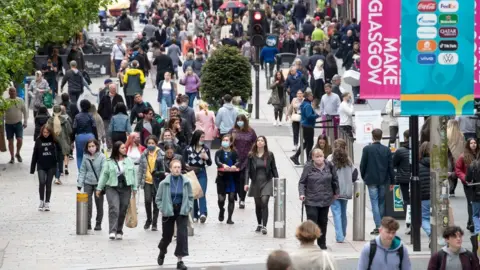 PA Media
PA MediaMs Sturgeon said the decision to keep Scotland's largest city in level three for a further week had been "very difficult".
But she said the number of new cases continued to be "uncomfortably high" despite the signs of progress.
The first minister added: "The view of the National Incident Management Team is that it would be premature to move Glasgow out of level three immediately, while the situation remains so fragile."
However, if the situation continues to stabilise, Ms Sturgeon said the management team would support a move to level two at the end of next week.
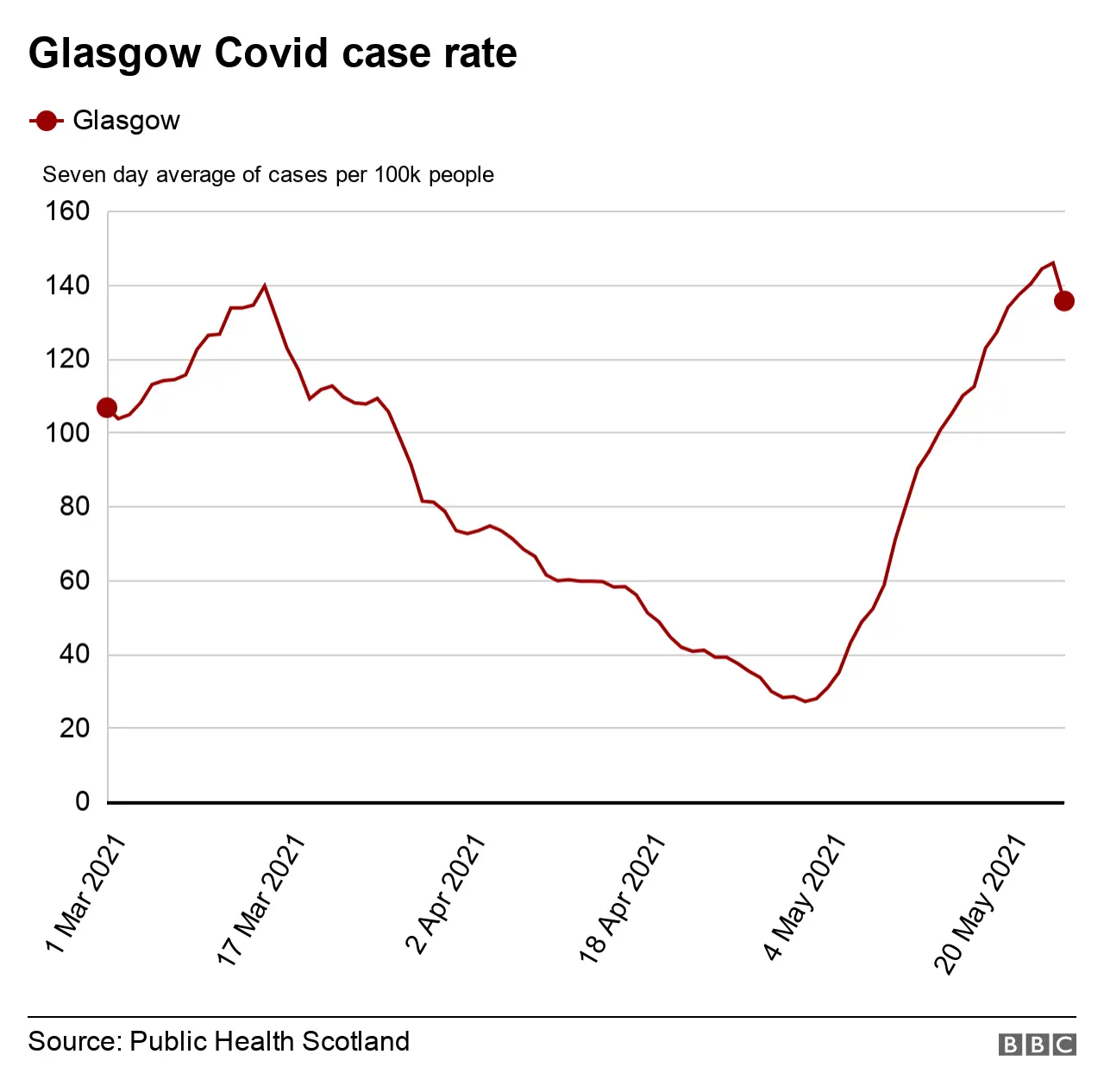
Responding to the announcement, the Federation of Small Business said its members in Glasgow had become "used to these weekly Friday disappointments" - with this one "even more galling" because of the sunny weather that is forecast for the Bank Holiday on Monday.
Its chairman, Andrew McRae, said: "The businesses and employees hardest hit by these ongoing restrictions need proper support now.
"The Glasgow hospitality industry was given two days to scrap their re-opening plans (earlier this month) - but even now, after two weeks, we still don't have adequate financial support measures in place."
The Scottish government says further funding has been made available to Glasgow City Council to provide additional support for businesses in hospitality and leisure in Glasgow, with grants ranging from £250 to £750 per week.
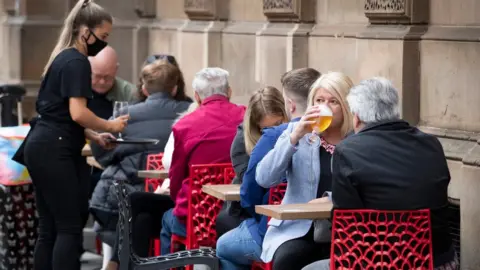 PA Media
PA MediaScottish Conservative leader Douglas Ross said: "Glasgow has now been under Covid restrictions for 270 days and people were looking to the first minister to give them some hope.
"Instead, we saw Nicola Sturgeon keep the whole city under tougher restrictions for another week, despite outbreaks being largely confined to one area."
He said the government must immediately ramp up the vaccination rollout and testing capacity in the virus hotspots, rather than "continuing to treat the city as one entity".
Scottish Labour deputy leader Jackie Baillie said the government had to be able to tackle future local outbreaks without "draconian lockdown measures" being put in place.
The first minister will also give an update next Tuesday on whether, and to what extent, the proposed move to level one for mainland council areas will proceed as planned.
She said: "If we see a significant reduction in the health harms of Covid, even as case numbers rise, then hopefully that will allow us to change our approach.
"Because we will be able to rely then on other public health measures, rather than blanket restrictions, to keep the outbreaks under control."
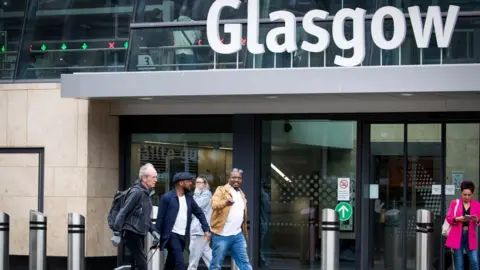 PA Media
PA MediaThe number of people in hospital with the virus has increased from 68 three weeks ago to 90 today - but there were more than 2,000 people in hospital at the peak of the second wave in January, and the number of Covid patients in intensive care is currently very low.
The first minister said she had considered whether additional restrictions needed to be introduced in three other council areas - Clackmannanshire, Renfrewshire and East Renfrewshire - where there are relatively high levels of the virus.
But all three areas have relatively low populations and the number of cases is low in absolute terms - with public health teams confident that the outbreaks are able to be controlled using existing measures.
There have been 641 new positive cases of the virus recorded across Scotland in the past 24 hours - the highest daily figure since 25 March.
The deaths of a further two people who had previously tested positive for the virus have also been recorded, while the number of people in hospital has risen to 90 - with six patients in intensive care.

- LOCKDOWN RULES: What's changing and when?
- GLOBAL SPREAD: How many worldwide cases are there?
- CASE RATES: What's the latest in Scotland?
- NEW VARIANTS: How worried should we be?

